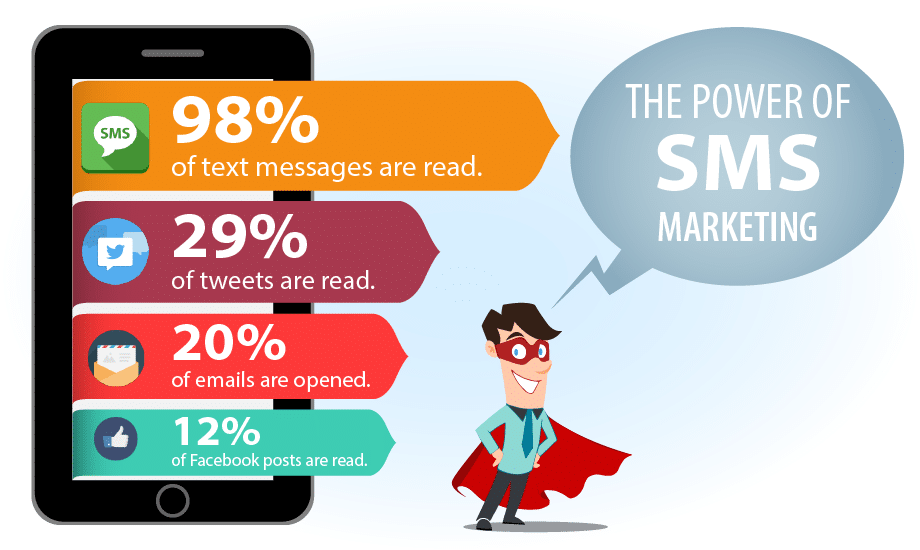📑 Table of Contents
- Understanding Business Text Messaging
- The Rise of Business Text Messaging
- Why Business Text Messaging?
- Implementing Business Text Messaging Effectively
- Advanced Strategies in Business Text Messaging
- Navigating Challenges and Best Practices
- The Evolving Landscape of Business Text Messaging
- Exploring Future Trends in Business Text Messaging
- Leveraging Text Messaging Across Industries
- Getting Started: Steps to Launch Your SMS Campaign
- Closing Words
In a world where immediacy and personalization are not just valued but expected, business text messaging stands out as a communication powerhouse. With its unparalleled open rates and efficiency, SMS (Short Message Service) for business is transforming how companies interact with their customers.
This in-depth post delves into the mechanics, benefits, and strategic implementation of business text messaging, ensuring your business leverages this tool to its full potential.
Understanding Business Text Messaging
At its core, business text messaging is a way for companies to communicate with customers using SMS technology. This method transcends the clutter of email inboxes and social media feeds, offering a direct and unobtrusive line to customers. It’s more than just sending promotions; it’s about creating conversations and building lasting relationships.
For those new to the concept, text message marketing is a strategy that involves sending promotional or transactional messages to customers via SMS. These messages can range from alerts about new products, special offers, or reminders about appointments or events.
The Rise of Business Text Messaging
The ascent of business text messaging isn’t just a trend; it’s a response to the growing demand for instant and convenient communication.
In a world where nearly everyone is attached to their mobile device, SMS (Short Message Service) has become a powerful tool for businesses.
Texting websites and platforms have made it easier than ever for companies to reach out to their target audience, ensuring that messages are not only sent but also seen.
Why Business Text Messaging?
- Exceptional Open Rates: SMS messages boast nearly a 98% open rate, dwarfing email’s 20%.
- Speed and Accessibility: Texts are read within minutes, making them ideal for time-sensitive communications.
- Personal Touch: Personalization capabilities of SMS allow for tailored messaging, fostering a deeper connection with customers.
- Broad Reach: Nearly everyone owns a mobile phone, making SMS an excellent tool for reaching a wide audience.
- Cost-Effectiveness: SMS marketing is relatively inexpensive compared to other channels, offering a high ROI.

Implementing Business Text Messaging Effectively
- Selecting the Right Platform: Look for features like automation, integration with existing tools, analytics, and scalability.
- Building a Compliant Contact List: Always obtain explicit consent and provide clear opt-out options to maintain trust and comply with regulations like GDPR or TCPA.
- Crafting Impactful Messages: Focus on clarity, brevity, and value in your messaging. Avoid jargon and overly salesy language.
- Timing and Frequency: Choose the right time to send messages. Be mindful of not overloading your customers with too many texts.
- Analyzing and Refining: Use analytics to track engagement and tweak your strategy for better results.

Advanced Strategies in Business Text Messaging
- Segmentation and Personalization: Use customer data to segment your audience and personalize messages based on their preferences and behaviors.
- Interactive Campaigns: Incorporate polls, surveys, and contests to increase engagement.
- Automated Responses and Chatbots: Utilize AI-driven chatbots for instant responses to common queries.
- Integration with Other Channels: Combine SMS with email, social media, and other marketing channels for a cohesive strategy.
- Maintaining Privacy and Consent: Always prioritize customer privacy and adhere to legal standards.
- Crafting Engaging Content: Avoid monotonous messages; include offers, tips, or valuable information.
- Measuring Success: Focus on metrics like response rate, conversion rate, and customer feedback to gauge the effectiveness of your campaigns.
The Evolving Landscape of Business Text Messaging
Emerging technologies like AI, chatbots, and RCS (Rich Communication Services) are set to further revolutionize business text messaging. These advancements promise more dynamic, interactive, and richer content, enabling businesses to offer even more engaging and valuable experiences to their customers.
Exploring Future Trends in Business Text Messaging
The future of business text messaging is incredibly promising. With advancements in technology, businesses can expect to see:
- Integration with AI and Machine Learning: This will allow for smarter segmentation and personalization, predicting customer needs and behavior more accurately.
- Enhanced Interactivity: The introduction of RCS (Rich Communication Services) will enable sending rich media, interactive elements, and even transactional capabilities directly within a text message.
- Greater Automation Capabilities: Improved AI will allow for more sophisticated automated conversations, making customer service more efficient.
- Increased Security Measures: As the reliance on SMS increases, so will the need for enhanced security protocols to protect sensitive customer information.
Leveraging Text Messaging Across Industries
Business text messaging is versatile, finding its use across various industries:
- Retail: Send personalized offers, sale notifications, and shopping cart abandonment reminders.
- Healthcare: Appointment reminders, patient follow-ups, and public health notifications.
- Banking and Finance: Transaction alerts, fraud warnings, and customer service inquiries.
- Education: Event notifications, emergency alerts, and administrative communications.

Getting Started: Steps to Launch Your SMS Campaign
Launching an SMS campaign requires more than just sending out a flurry of texts. It’s about crafting messages that resonate with your audience, understanding the timing, and measuring the impact.
SMS campaigns insight provide invaluable data on customer engagement, helping businesses refine their strategies for maximum effectiveness.
Analyzing open rates, response rates, and conversion metrics can transform an ordinary campaign into a highly successful one.
- Set Clear Objectives: Define what you want to achieve with your SMS campaign – whether it’s increased sales, customer engagement, or service notifications.
- Know Your Audience: Understand who your customers are and what kind of messages they would appreciate.
- Craft Compelling Content: Write messages that are clear, concise, and call the recipient to action.
- Test and Learn: Start with a small campaign, gather feedback, and iterate for improvement.
To truly understand the power of business text messaging, one must look at real-world text advertising examples. Companies across various industries have successfully utilized SMS to boost sales, improve customer service, and enhance brand loyalty.

Closing Words
In conclusion, business text messaging is more than just a communication tool; it’s a strategic asset that, when used effectively, can significantly enhance customer engagement, loyalty, and business growth.
As technology continues to evolve, so too will the capabilities and applications of SMS in business, making it an exciting area for continued innovation and investment.
